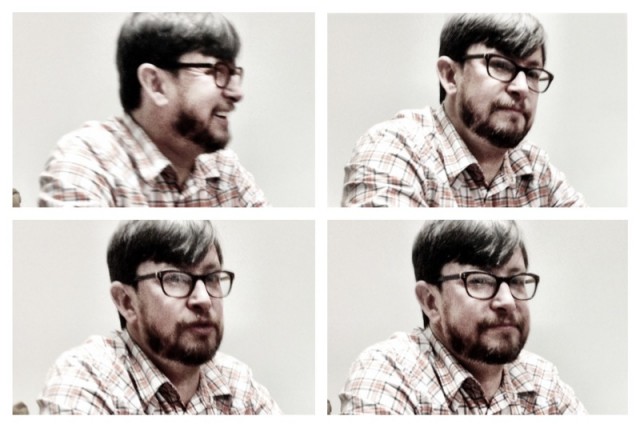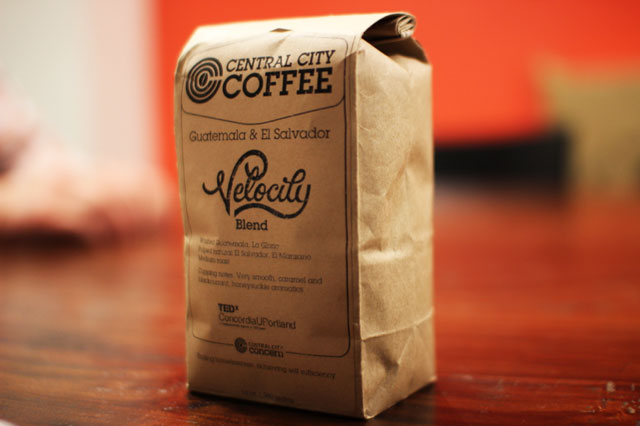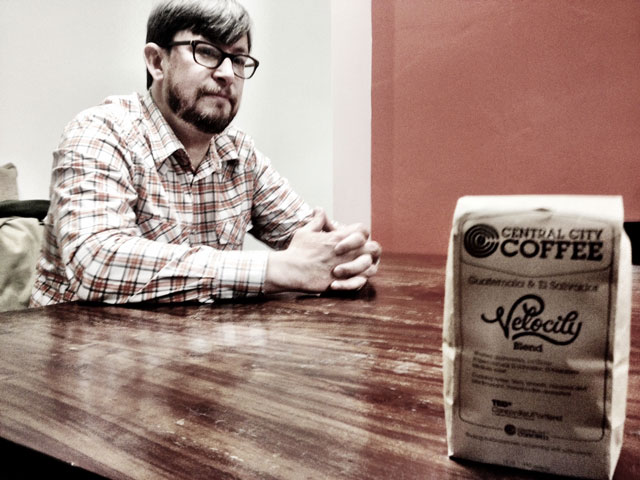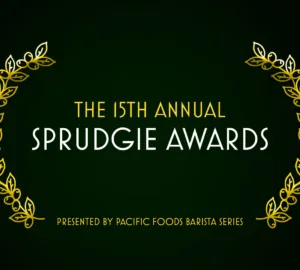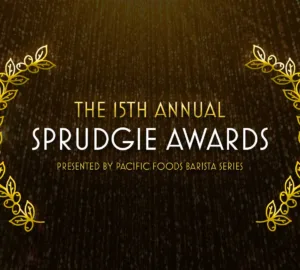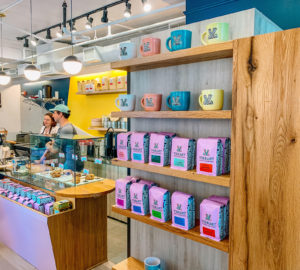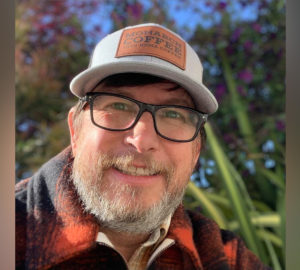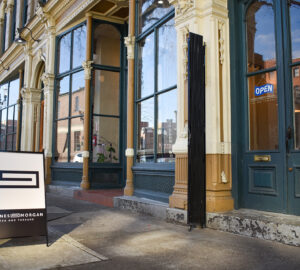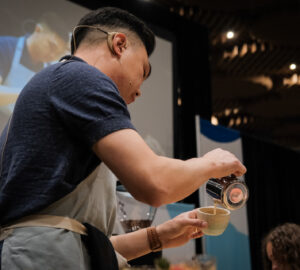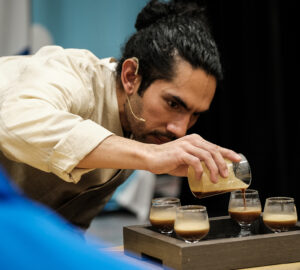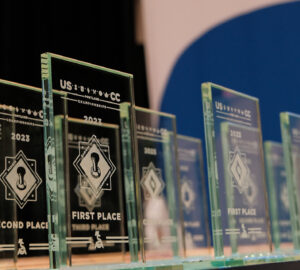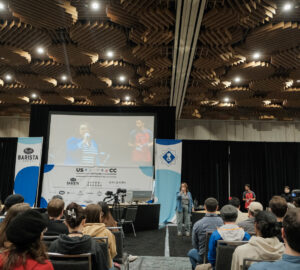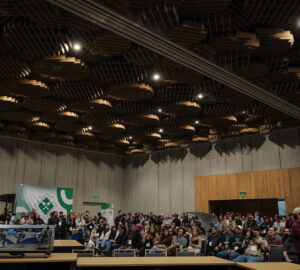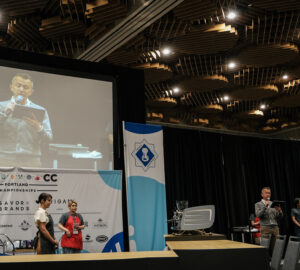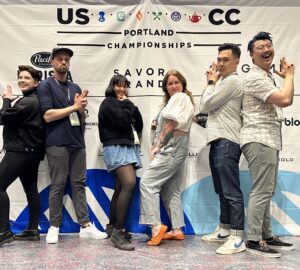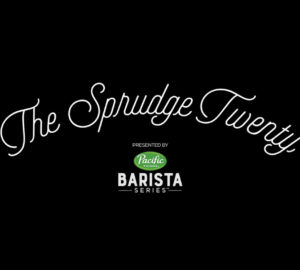In late 2012, the close-knit United States specialty coffee community learned that Marcus Young would be leaving his longtime post at the Olympia branch of Batdorf and Bronson to focus on a new project. Like many of our friends and colleagues, we were quite curious as to what the future would hold for Mr. Young, a longtime upstanding community member and newly certified United States Barista Championship Head Judge.
We were thrilled, then, when Mr. Young agreed to a series of interviews with us on his new project. It’s called Central City Coffee, the newest facet to the three-plus decades of work being done in Portland, Oregon by a homeless social outreach nonprofit called Central City Concern. The vision is a simple one: to unite a new, quality-driven specialty coffee brand with the overarching mission of Central City, and to staff that brand with individuals receiving services from the agency. It’s a way to tell Central City Concern’s story on a bag of meticulously sourced, delicious specialty coffee, while providing transferable job skills and an insider education on the coffee industry to folks in need.
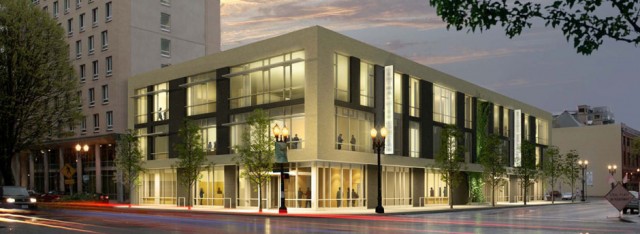
“Homelessness isn’t a condition.”
Central City Concern have been operating in the city of Portland since 1979. Their mission, as explained to us by Public Affairs director Dedee Wilner-Nugent, is to “provide people with tools to achieve self-sufficiency and end homelessness.” The staff at Central City Concern is a part of their success story: 25% of CCC’s internal staff are former clients, and a full 40% have been through recovery services. “Homelessness isn’t a condition”, Wilner-Nugent told us, “it’s what happens when all the conditions pile up.”
The approach at Central City Concern is three-pronged. First, they address the immediate needs of health by providing sobering stations, individual outreach, detox facilities linked to social services, housing, recovery centers, and low-income primary care clinics. Housing is an especially important part of what they do, providing the needed “safehouses” to fit a variety of situations, including families in recovery, clean & sober housing, and “low barrier” housing. Their model is about choice, and stability, safety, and access to resources were repeatedly touched upon as goals during our interviews with CCC staff.
Second, Central City Concern offers comprehensive employment services aimed towards education and self-sufficiency. This includes employment help centers and the Community Volunteer Corps, a way for folks who are currently receiving social services to give back to their community while establishing a resume. The way these services play out are as unique as the people who seek them; over 41,000 hours of work time have been donated local food banks, parks, and rebuild centers (to name just a few) by members of the Community Volunteer Corps, the vast majority of whom are current CCC housing tenants or have been referred from elsewhere in the program.
Third is social enterprise. Although Central City Concern is the recipient of an impressive network of grants and government funding (see full list here), the organization believes strongly in fostering an entrepreneurial culture. Revenue producing and earned income is the end goal for each and every client at CCC, and part of how they achieve that goal is by developing small business enterprises within the organization. For example, they’ve developed and own the rights to the “Central City bed”, a bed-bug resistant bed frames sold to a wide variety institutional housing entities across the United States, including colleges, jails, summer camps, and organizations with a similar mission as their own. They’re partnered with a manufacturer in Portland who does the actual manufacturing for CCC – some of them are sold directly, others through sales reps out in the world with knowledge of individual communities.
Revenues earned from the “Central City bed” are re-dispersed back into the program; self-sufficiency is an enormous task for an organization like Central City, but revenue earning projects like the bed make that goal seem more and more attainable.
This is where coffee comes in.
The initial idea for a coffee program at Central City started in 2010, as facilitated by Portland State University’s social enterprise incubator. David Griswold and Sustainable Harvest were early participants in this program – they are now considered “alumni” of the social incubator – and Mr. Griswold reached out to Mr. Young for consultation and opinion on starting a coffee program with Central City. The two men knew almost immediately that they didn’t want to buy a roaster; reaching out to a partner in the vibrant Portland specialty coffee community made a great deal of logistical sense. They found that partner in Portland Roasting Coffee, andtThe two entities drew up a deal soon after, whereby Portland Roasting would support the program by providing Central City a remarkable degree of access to roasting, training, and consulting services, in addition to co-sourcing some (but not all) of the green coffee for this new roasting brand.
Dedee Wilner-Nugent describes this moment as a “a very powerful values alignment between Portland Roasting and CCC,” which is a professional grant writer’s way of saying that Portland Roasting was totes down with the plan, man. The vision was to create a fundamentally good, meaningful project in Portland that links Central City Concern with a reputable specialty coffee roaster, thereby widening the chain to include coffee producers. A social impact on both ends of the supply chain; a cycle of connectivity with participants from the streets, colleges, and roastworks of Portland to all corners of the world.
The original plan was just for wholesale coffee roasting, but in January of 2013 Wells Fargo gave Central City Concern a $100,000 grant for job creation. The folks we spoke to at CCC feel their coffee program may well have been an important part of why this grant was made, as it pushes the organization closer to self-sufficiency. This funding has allowed Marcus Young and Central City Coffee to solidify their goals for the coffee program, which was explained to us as, again, a three-pronged approach:
1. Source really great coffee and roast it well.
2. Provide employment opportunities in the coffee trade for clients of Central City Concern’s network of social services and housing.
3. Tell Central City Concern’s story through coffee, which is largely what we’ve been doing here in this article.
Job skills to pay the bills.
Marcus Young will be employing up to 12 “trainees” a year from Central City’s hiring services and Community Volunteer Corps. These trainees will receive basic sensory evaluation and cupping training, barista training, production skills, customer service training, account management experience, delivery logistics experience, and considerable “insight into the industry” from Mr. Young and Portland Roasting. If they so desire, trainees will be given opportunities to continue in specialty coffee after their training period ends. This could include work in coffee houses, restaurants, and other roasting companies in the Portland area; graduates of the Central City Coffee program will be armed with job skills and references that could make them ideal candidates for such work.
Maybe we’re burying the lede here a bit, but you should read that above paragraph again. This is an enormously innovative program of hands-on training from specialty coffee experts, offered through an agency that specializes in homeless and recovery communities. Coffee quality is a very important part of Central City Coffee’s mission, and that quality will be on display at the upcoming TEDx Concordia. Mr. Young and his team at Central City Coffee will be providing coffee service at this event, including brew demos meant to engage the TEDx audience during their “action breaks’. This will be the first public exhibition for Mr. Young under the Central City Coffee brand name; their coffee will be available in Portland area grocery stores and on the web soon.
Marcus Young is the center of this project, the sun in its orbit. It’s rare to be given a glimpse at the initiation of a life’s work, but the multiple interviews we conducted with him for this article felt like exactly that. Events like TEDx Concordia are just the beginning, and we look forward to following the growth of Central City Coffee for years to come.











